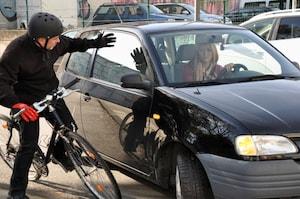Recent Blog Posts
What Are the Penalties for Possession Compared to Distribution in an Illinois Drug Charge?
 The state of Illinois recently passed a bill legalizing recreational marijuana use starting in 2020. However, there are still restrictions on amounts a person can have, as well as where you can buy it. There are also many other illicit drugs such as heroin, cocaine, and more that remain illegal in Illinois.
The state of Illinois recently passed a bill legalizing recreational marijuana use starting in 2020. However, there are still restrictions on amounts a person can have, as well as where you can buy it. There are also many other illicit drugs such as heroin, cocaine, and more that remain illegal in Illinois.
Drug charges are taken seriously in the state of Illinois. The Illinois Controlled Substances Act criminalizes the intentional possession, manufacture, and delivery of specific controlled substances. The severity of punishment for drug charges depends on three factors: the type of drug, the quantity, and the type of crime. It is important to know the difference between possession and the distribution of drugs in case you are facing charges for either of these crimes.
Drug Possession
Possession means that a person has a controlled substance under his or her control, which can be in the individual’s car, home, or on his or her body/clothing. In order to convict someone for drug possession, prosecutors must prove all of the following beyond a reasonable doubt:
Can I Reinstate My Illinois Driver’s License After a DUI?
 Driving under the influence (DUI) of drugs or alcohol is a serious offense in Illinois. Regardless if it is a first DUI or a repeat or aggravated DUI charge, the consequences are significant if convicted. Penalties can include jail time, steep fines, and/or suspended license. Upon conviction of DUI, the guilty party will have a mandatory revocation of his or her driver’s license. If a person’s license is revoked, it can impact his or her life significantly, especially if he or she does not have an alternate mode of transportation to get to and from work. This penalty is not permanent; however, as it is possible for an offender to have his or her driver’s license reinstated after a period of time and after certain conditions are met.
Driving under the influence (DUI) of drugs or alcohol is a serious offense in Illinois. Regardless if it is a first DUI or a repeat or aggravated DUI charge, the consequences are significant if convicted. Penalties can include jail time, steep fines, and/or suspended license. Upon conviction of DUI, the guilty party will have a mandatory revocation of his or her driver’s license. If a person’s license is revoked, it can impact his or her life significantly, especially if he or she does not have an alternate mode of transportation to get to and from work. This penalty is not permanent; however, as it is possible for an offender to have his or her driver’s license reinstated after a period of time and after certain conditions are met.
The Possible Consequences of a Commercial Driver’s License Violation in Illinois
 In Illinois, there are three types of driver’s licenses: commercial driver’s license; chauffeur’s license; and personal vehicle driver’s license. To drive certain types of commercial vehicles, drivers are required by federal law to possess a commercial driver’s license (CDL). Commercial driver’s licenses are categorized as Class A, B, and C licenses depending on the weight of the vehicle and its load.
In Illinois, there are three types of driver’s licenses: commercial driver’s license; chauffeur’s license; and personal vehicle driver’s license. To drive certain types of commercial vehicles, drivers are required by federal law to possess a commercial driver’s license (CDL). Commercial driver’s licenses are categorized as Class A, B, and C licenses depending on the weight of the vehicle and its load.
A commercial motor vehicle (CMV) driver must follow certain rules and regulations to maintain his or her CDL license. CDL violations carry significant penalties and can result in a loss of driving privileges.
Types of CDL Violations
Certain traffic violations involving a commercial motor vehicle (CMV) as well as a driver’s personal vehicle can affect the eligibility to operate a CMV. Some of the offenses that warrant a CDL violation and possible suspension include:
Understanding the Differences Between Burglary and Robbery in Illinois
 When people hear the words burglary and robbery, they may think they are the same crime. Although similar in nature, there are differences that make them separate in terms of penalties. Whether or not a weapon was involved in committing the act also factors into the legal consequences. Burglary is when a person illegally enters a building in order to commit a crime while inside. Robbery involves taking money or property from a person without permission by force or intimidation with the intent to keep the property permanently. In Illinois, both burglary and robbery convictions are serious crimes and can result in significant prison time in addition to steep fines.
When people hear the words burglary and robbery, they may think they are the same crime. Although similar in nature, there are differences that make them separate in terms of penalties. Whether or not a weapon was involved in committing the act also factors into the legal consequences. Burglary is when a person illegally enters a building in order to commit a crime while inside. Robbery involves taking money or property from a person without permission by force or intimidation with the intent to keep the property permanently. In Illinois, both burglary and robbery convictions are serious crimes and can result in significant prison time in addition to steep fines.
Penalties for Burglary and Robbery
In most cases, burglary is considered a felony. Illinois laws determine burglary penalties based on certain factors such as:
What Are the Consequences of a DUI Conviction for a Driver Under 21 in Illinois?
 Every year in Illinois, hundreds of people die as a result of drinking and/or drugged driving. Hundreds more are seriously injured or permanently disabled. Driving under the influence (DUI) of drugs or alcohol is illegal in the state of Illinois, and the penalties for it are steep. Drivers under the age of 21 only make up 10 percent of licensed drivers, but they are involved in 17 percent of alcohol-related fatal crashes.
Every year in Illinois, hundreds of people die as a result of drinking and/or drugged driving. Hundreds more are seriously injured or permanently disabled. Driving under the influence (DUI) of drugs or alcohol is illegal in the state of Illinois, and the penalties for it are steep. Drivers under the age of 21 only make up 10 percent of licensed drivers, but they are involved in 17 percent of alcohol-related fatal crashes.
Even though the legal drinking age is 21 in Illinois, many people drink before their 21st birthday. Some people may think this is harmless, but when a teenager chooses to operate a vehicle while intoxicated, it can result in devastating injuries or even death, not only for him or her, but for other drivers on the road as well. Consequently, someone stopped for a suspected DUI who is also under 21 can face severe legal penalties that can have lasting effects.
When Do I File a Third-Party Lawsuit Instead of a Workers’ Compensation Claim?
 Accidents can and do happen on the job, regardless of the occupation or workplace environment. According to Illinois law, if you are injured at work, you can file a workers’ compensation claim. This claim means you cannot sue your employer for an injury you suffer performing your job, even if your employer’s negligence caused your injury. Alternatively, when someone else who is not your employer is at fault for your work-related injury, you may sue him or her for wages lost or medical bills caused by his or her negligence. These types of claims against an individual or another company that caused a workplace injury are called “third-party claims.”
Accidents can and do happen on the job, regardless of the occupation or workplace environment. According to Illinois law, if you are injured at work, you can file a workers’ compensation claim. This claim means you cannot sue your employer for an injury you suffer performing your job, even if your employer’s negligence caused your injury. Alternatively, when someone else who is not your employer is at fault for your work-related injury, you may sue him or her for wages lost or medical bills caused by his or her negligence. These types of claims against an individual or another company that caused a workplace injury are called “third-party claims.”
Understanding Third-Party Liability
Illinois has a no-fault workers’ compensation system, meaning it does not matter if the employer or employee is to blame for the injury. If an employee suffers a serious injury at his or her workplace in Illinois, he or she can file a workers’ compensation claim with the Illinois Workers’ Compensation Commission. Benefits can include temporary or permanent disability payments, as well as coverage for medical bills and lost wages.
Staying Safe on the Roads as a Motorcyclist
 It is no secret that riding a motorcycle is extremely dangerous and could result in permanent or fatal injuries. According to the National Highway Traffic Safety Administration (NHTSA), 5,172 motorcyclists were killed in accidents in 2017. While driving a motorcycle is dangerous regardless of the situation, there are some preventative safety measures that can be taken to better protect yourself while riding on the roads.
It is no secret that riding a motorcycle is extremely dangerous and could result in permanent or fatal injuries. According to the National Highway Traffic Safety Administration (NHTSA), 5,172 motorcyclists were killed in accidents in 2017. While driving a motorcycle is dangerous regardless of the situation, there are some preventative safety measures that can be taken to better protect yourself while riding on the roads.
What Can I Do Before Getting on my Motorcycle?
Driving a motorcycle requires different skills than operating your average car does. Motorcycle licenses are required in addition to a typical automobile driver’s license. One should spend ample time practicing in a controlled space before heading to busier roads. Inexperienced drivers can be the most dangerous.
Like any vehicle, motorcycles must be checked to ensure that everything is in proper working order. Many do not self-check their cars after taking them to the mechanic for a routine checkup. Motorcycle drivers should be taking additional measures. The NHTSA suggests checking the tire pressure and tread depth, hand and foot brakes, headlights and signal indicators, and fluid levels before riding your motorcycle.
What If I Am Permanently Disabled Due to a Work Injury?
 Accidents can and do occur at companies and job sites even if every safety precaution is taken. In Illinois, workers’ compensation benefits can help cover medical expenses and lost wages if a worker is hurt while on the job. The majority of workplace injuries involve an employee eventually returning to work after he or she is healed. In certain accidents, however, a worker may sustain injuries so severe that they cause permanent restrictions or disability. If you are permanently disabled as a result of a catastrophic work injury, disability benefits might help you reclaim your life.
Accidents can and do occur at companies and job sites even if every safety precaution is taken. In Illinois, workers’ compensation benefits can help cover medical expenses and lost wages if a worker is hurt while on the job. The majority of workplace injuries involve an employee eventually returning to work after he or she is healed. In certain accidents, however, a worker may sustain injuries so severe that they cause permanent restrictions or disability. If you are permanently disabled as a result of a catastrophic work injury, disability benefits might help you reclaim your life.
Types of Permanent Disability Benefits in Illinois
According to Illinois law, there are two different types of permanent disability benefits depending on the consequences of an injury. Employers are required to pay permanent partial disability (PPD) benefits to an employee who is impaired or disfigured in some way while performing his or her job but who is still able to work in a limited capacity. Sometimes surgery will repair or correct an injury, and the worker can go back to his or her job after attending a rehab facility or doing physical therapy.
How Road Rage Can Lead to Bicycle Accidents

Many people enjoy riding their bicycles in the summer, especially after a long winter. In Illinois, cyclists must obey the same traffic laws, signs, and signals that apply to motor vehicles. For example, bicyclists are required by law to ride in the same direction as vehicle traffic. However, even though bikes have the same rights as other vehicles, cyclists are much more likely to be injured in a motor vehicle collision.
Road rage is one issue that can have a significant impact on bicyclists. An aggressive driver who strikes a bicycle is likely to cause serious or fatal injuries. If you are hurt while riding your bike due to a road rage incident, you should seek legal advice and learn about your options for pursuing compensation from the driver who injured you.
Examples of Road Rage
Common Car Accident Injuries in Illinois

The Chicago metropolitan area is among the most congested in the United States. The average driver spends an extra 111 hours in the car each year because of traffic. Along with the millions of cars on our roadways each day also comes an increased risk of car accidents and potential injury.
Some car crashes are minor, while others result in severe injuries with long-term effects or even permanent disability to drivers and occupants. Anyone injured in an auto accident should first seek medical attention for a complete diagnosis. If your accident was caused by the negligence of another driver, the next step is to contact a skilled personal injury lawyer who can fight for the compensation you deserve.
Here are some of the most frequent injuries suffered in car collisions:
Concussions
A concussion can occur due to a direct impact to the skull or from the head being thrown side-to-side or front-to-back because of the force of an accident. Concussion symptoms include headache, dizziness, ear ringing, and head pressure. Symptoms may develop immediately or hours after the crash.
 815-727-0100
815-727-0100













